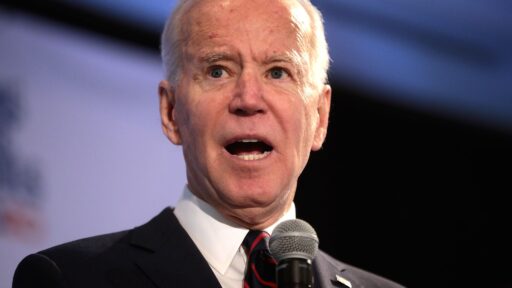This was unexpected.
Amidst the ongoing conflict between Israel and Hamas, recent polls indicate a notable shift in political sentiment among Muslim and Arab voters, with former President Donald Trump gaining traction at the expense of President Joe Biden. The dynamics of the Israel/Hamas war have become a focal point, revealing dissatisfaction among certain segments of the electorate with Biden’s handling of the situation.
President Biden’s staunch support for Israel, asserting its right to self-defense following a Hamas attack last October, has sparked criticism from many Muslim and Arab voters who had previously backed his candidacy in 2020. The repercussions of the conflict, which resulted in significant casualties and humanitarian concerns, have exacerbated tensions and prompted a reassessment of political allegiances.
In contrast to Biden’s approach, Trump’s unyielding stance on supporting Israel has resonated with a substantial portion of Muslim and Arab voters, as indicated by recent polling data. The survey, conducted by The New York Times/Siena College, reveals a significant lead for Trump among registered Middle Eastern, North African, or Muslim voters in key battleground states he lost to Biden in 2020. Approximately 57 percent of respondents expressed their intention to support Trump in the upcoming elections, compared to only 25 percent for Biden.
Interestingly, Biden maintains a lead among those Muslim and Arab voters who participated in the 2020 election, suggesting a potential shift in voter engagement or a realignment of support within the community. However, nearly 70 percent of those disinclined to support Biden cite concerns related to foreign policy or the Gaza conflict as decisive factors, underscoring the significance of these issues in shaping electoral preferences.
The polling data underscores the complexity of political dynamics within the Muslim and Arab American electorate, with divergent viewpoints and priorities influencing voting behavior. Moreover, the findings serve as a wake-up call for the Biden administration, highlighting the need to address concerns and effectively engage with these communities to maintain electoral support.
Beyond electoral implications, the evolving attitudes of Muslim and Arab voters towards both Biden and Trump reflect broader shifts in political discourse and the prioritization of issues such as foreign policy and humanitarian crises. As the Israel/Hamas conflict continues to unfold, its ramifications on domestic politics and electoral outcomes remain a subject of intense scrutiny and debate.







